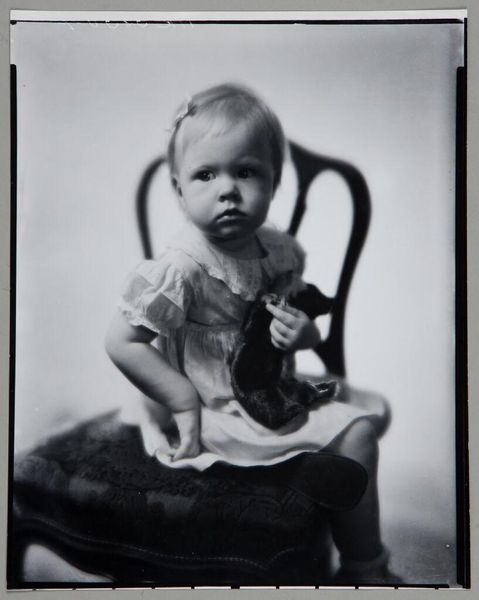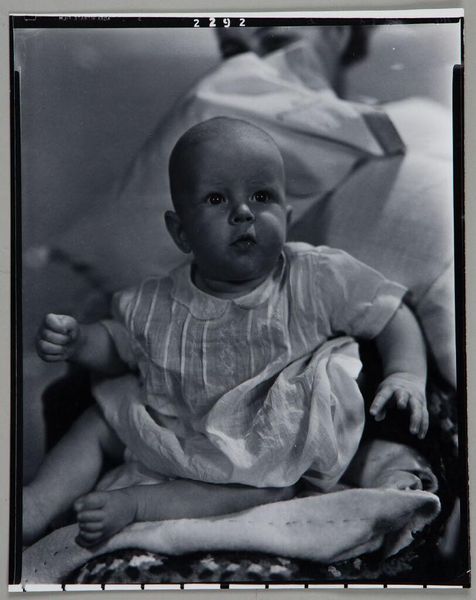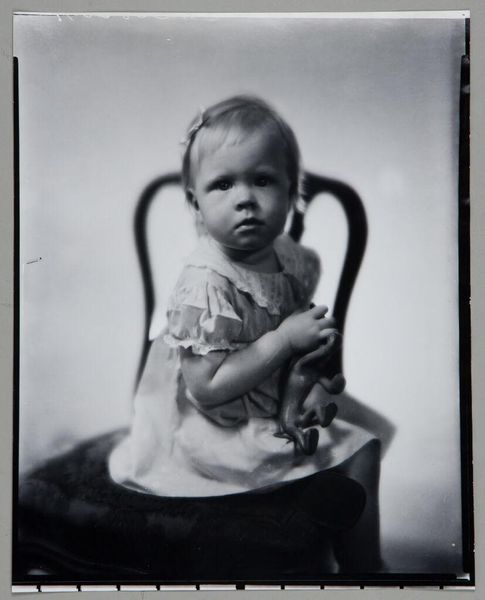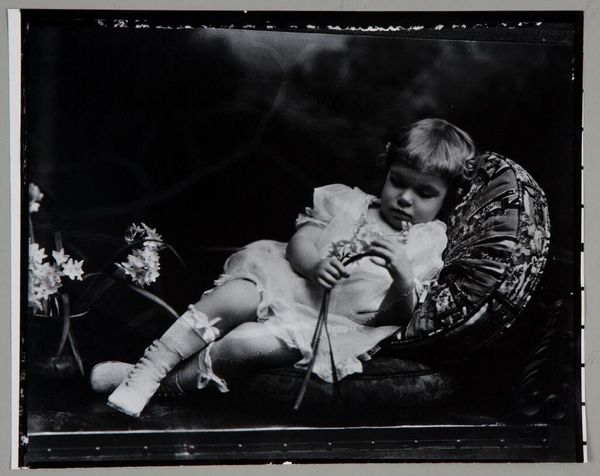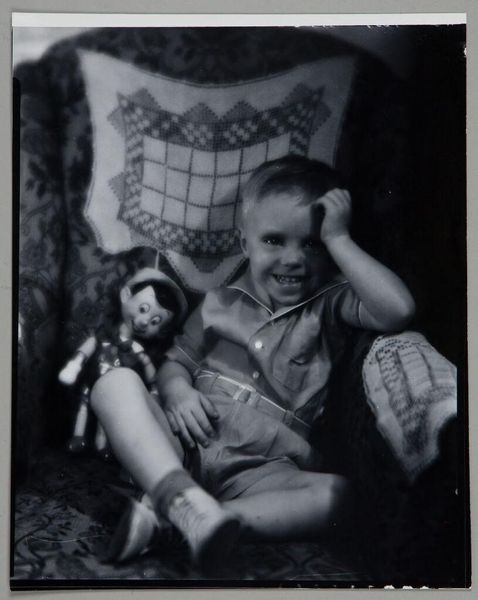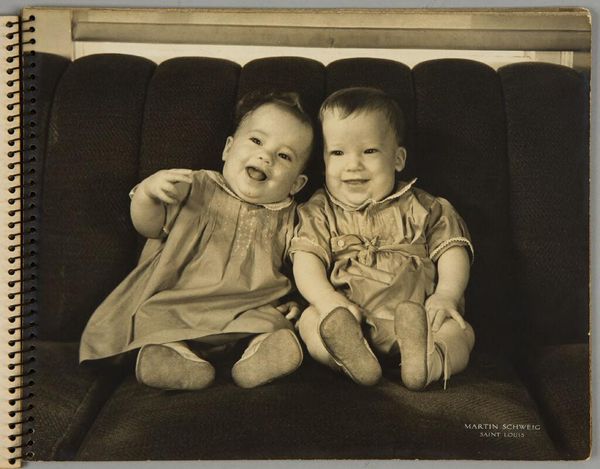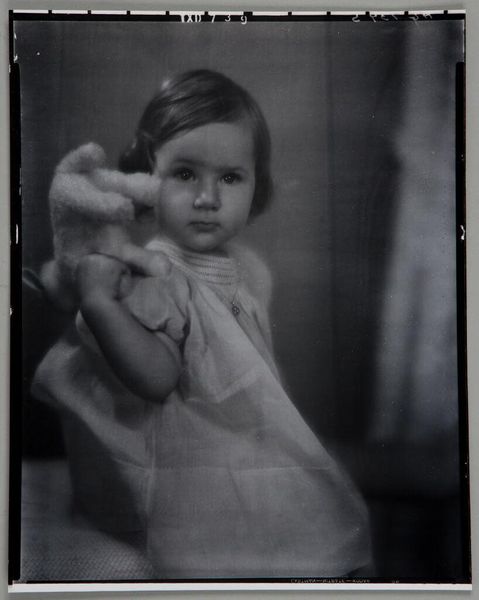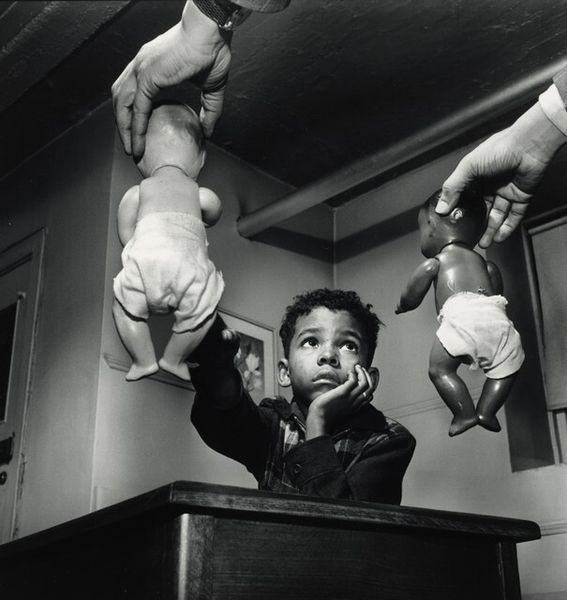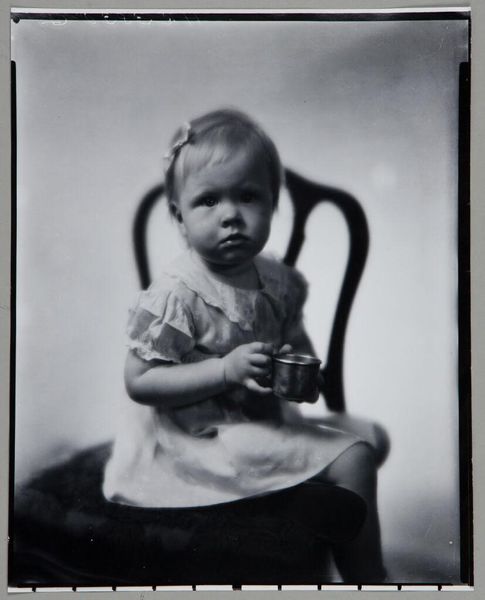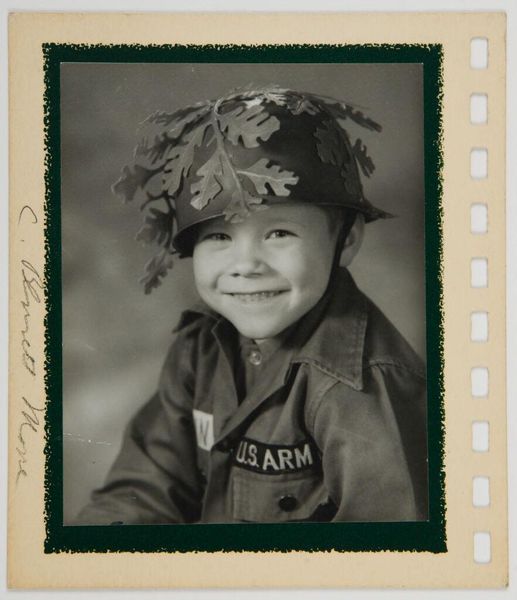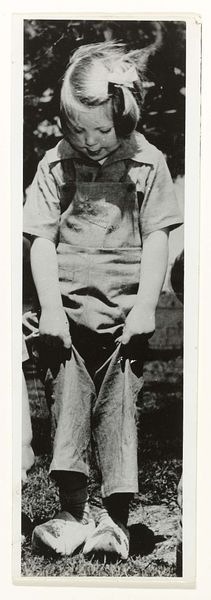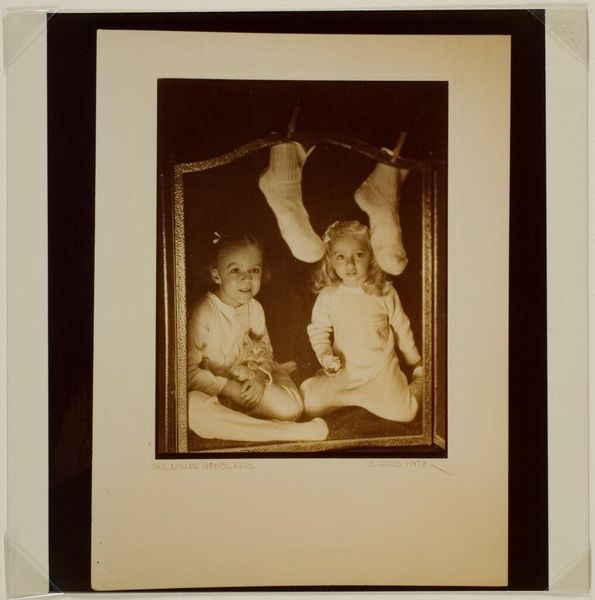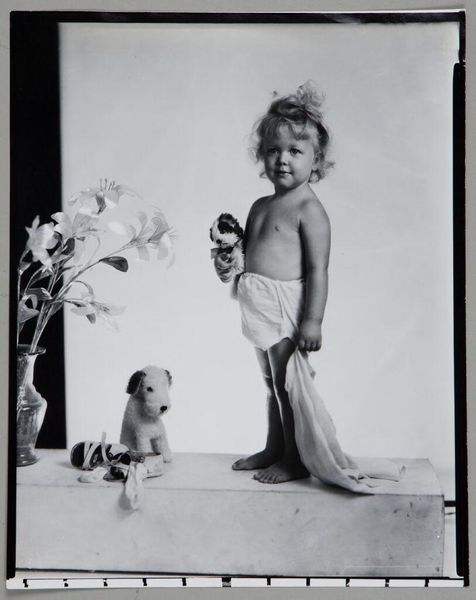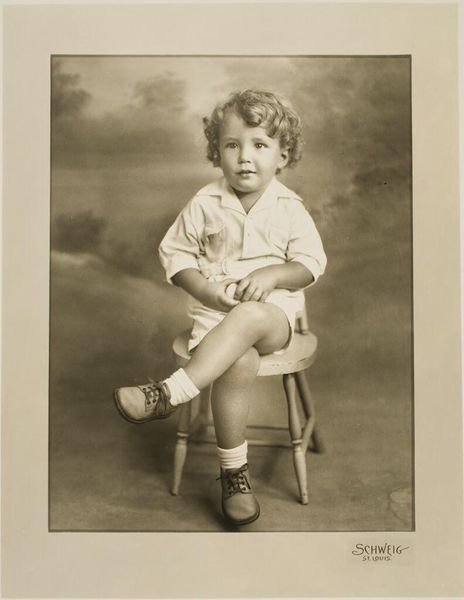
Boy's Club Heavyweight, 9-year-old Robert Sampson, Barney Neighborhood House, Washington, D.C. 1948
0:00
0:00
photography, gelatin-silver-print
#
black and white photography
#
portrait image
#
photography
#
historical photography
#
black and white
#
gelatin-silver-print
#
ashcan-school
#
realism
Dimensions: image: 35 × 27.3 cm (13 3/4 × 10 3/4 in.) sheet: 35.56 × 27.94 cm (14 × 11 in.)
Copyright: National Gallery of Art: CC0 1.0
Editor: This gelatin silver print, titled "Boy's Club Heavyweight, 9-year-old Robert Sampson, Barney Neighborhood House, Washington, D.C.," was taken in 1948 by Arthur Ellis. The young boxer looks incredibly serious. What’s your take on this image? Curator: Ah, yes, young Robert… what strikes me first is the collision of innocence and experience. See those enormous gloves? They seem to swallow his small frame. He’s got this world-weary gaze, though, hasn’t he? It's a really affecting juxtaposition. The soft light wrapping around him makes it hard not to empathize. Editor: It’s interesting that you point that out because when I see this picture, I focus mostly on how mature he seems. And the composition draws all my attention straight to his face, it commands authority, but… there is a little crack, a child hiding under the surface, wouldn't you agree? Curator: Absolutely, that flicker! Ellis captures it brilliantly. You sense this defiance but also this underlying vulnerability, the sort only hinted at within. Does the environment around him say anything to you? Editor: I didn't notice it right away, but the image presents also a glimpse of a room with what appear to be other hanging gloves, perhaps left there by others... Could it also indicate something? Curator: I am sure, that, even indirectly, this photograph says as much about that specific place in D.C. as it does about the kid. Now, considering that the photo was taken right after the end of World War II... Perhaps we could even interpret it more widely and compare it with the American identity and what being a boy represented back then. Editor: That gives me a totally different way of thinking about this picture, one that encompasses so much more than what is immediately shown. I will definitely have to spend more time reflecting upon those historical connotations. Thanks! Curator: Likewise, your interpretation opened my eyes to the subject's inherent innocence. Art is, after all, about different perspectives merging.
Comments
No comments
Be the first to comment and join the conversation on the ultimate creative platform.
